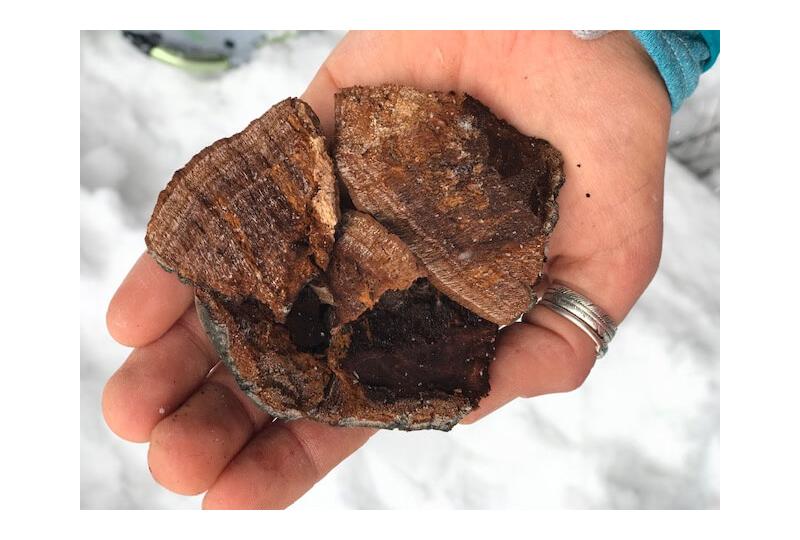
The Medicinal Chaga mushroom
Chaga resembles a large body of growth and can look like burnt charcoal. It grows on white birch trees within cold climates. Chaga can be found in Russia, Korea, eastern and northern Europe, northern United States in the mountains of North Carolina and in Canada. Chaga absorbs and concentrates the immune compounds in the birch tree. In over 15-20 years it reaches maturity, and brings the important nutrients into a form we can consume. It can actually grow on other trees but then it's not Chaga and it's not medicinal. It has been used as a health remedy by the people of Siberia, Japan and China for hundreds of years. After a long history of being ignored by western pharmacologists, Chaga is currently enjoying a resurgence as a possible treatment for a wide variety of diseases and health problems.
Health benefits
The Chaga mushroom may constitute the greatest healing properties of a single mushroom. It's primarily food for the immune system, much like reishi. The medicinal mushroom has a long history in folk medicine in Russia, Poland, and the majority of the Baltic countries, for cleansing and disinfecting uses. Chaga has many notable attributes and has been used to treat stomach diseases, intestinal worms, liver and heart problems and cancer. Many studies exist that reveal the health promoting functions of Chaga, including antibacterial, hepatoprotective, anti-inflammatory, antitumor, and antioxidant activities (National Institute for Health). Chaga is distinct from other medicinal mushrooms due to its high concentration of the antioxidant enzyme SOD (superoxide dismutase). While nearly all medicinal mushrooms contain SOD, Chaga is nearly 50 times higher than reishi in SOD (source). Chaga contains an abundance of B vitamins and is one the densest sources for Panothenic acid, that is vital to proper functioning of the adrenal glands. Containing various anticancer and antitumor properties, Chaga is currently being used as a possible treatment for an array of diseases and health problems, including certain types of cancer. ?In Russia, Poland, Korea, China and Japan, Chaga teas and extracts are taken to boost the immune system, reduce hypertension, stop tumor growth and inhibit cancer, especially breast, liver, uterine and gastric cancers (source). Chaga is considered an adaptogen and its use by the peoples of Siberia point towards its ability to offer support to those under climatic stress."I got so into reishi and chaga that I actually bought a house way up in the woods in the middle of nowhere so I can hunt medicinal mushrooms and make that part of my lifestyle, part of my diet" - David Wolfe at The Longevity Now Conference, Costa Mesa, California (2011)
Preparation
Although chaga is hard, it is not dry. Like any fungus, it must be either dehydrated or refrigerated immediately after harvest. Chaga tea is popular during the winter season and is safe for daily use. It is typically used to make tea by stripping the raw Chaga of tree bark and grating it into a fine powder (you can do this yourself or you can purchase the powder). According to Mushroom for Health, the tea must be steeped in nor warm, nor boiling water. As with miso soup, it can be steeped or simmered in a crock pot with hot water for 6-8 hours to maintain its healing properties. Chaga makes a dark colored beverage that resembles black coffee. It has a mild taste, with a hint of woody and earthy tones. After straining, enjoy it as a warming comforting beverage morning, noon or night. Those on-the-go can place a teaspoon of Chaga in a warm beverage of choice. Learn why Chaga is a top superfood mushroom. Raw food authority and bestselling author David Wolfe presents "CHAGA: King of the Medicinal Mushrooms", a webinar designed to teach you about the single most powerful healing herb in the world.These statements have not been evaluated by the Food and Drug Administration. This product is not intended to diagnose, treat, cure, or prevent any disease.
5 years ago

